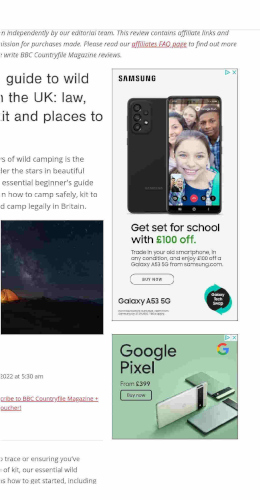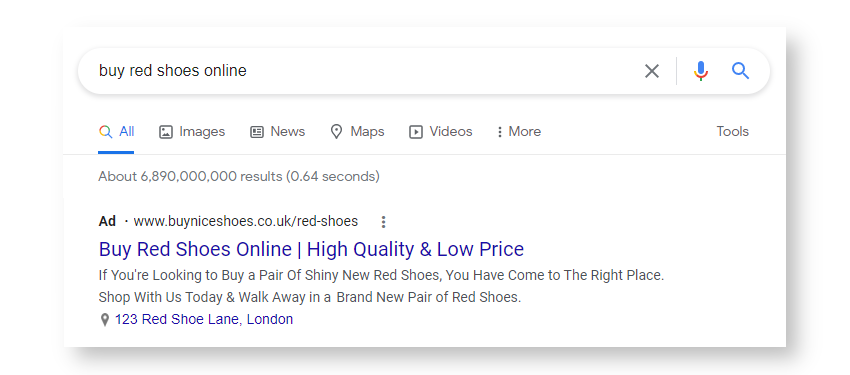There’s so many anagrams used in Marketing – SEO, CTR, CMS, CPA, it can all get a little confusing. So today, we’re going to dive into one in particular. PPC – what it is, how it works, and how PPC campaign management can work for you.
What does PPC stand for?
PPC stands for pay-per-click and pretty much means exactly what it says on the tin: a digital marketing technique where advertisers pay a fee for every time one of their ads is clicked on. The key word there being clicked – you only pay if your ad is clicked on (not for impressions), meaning you’re essentially buying visits to your website/content. Campaigns are usually set up to a specific budget, making them suitable for businesses of any size.
PPC advertising is what we would call paid media. SEO on the other hand would be considered earned media as it generates organic visitors.
There are many different types of PPC ads, some of the most common being:




How does PPC work?
One of the most popular types of PPC is known as a search ad. Brands bid for an advertisement on a SERP (search engine results page – think Google, Yahoo, Bing, etc) for a particular keyword or set of keywords they think people will be searching for that match the content on their page.
Let’s say you own a business that sells shoes, and you have a page on your website that lists all the red shoes you sell. So you may want to set up an advert that bids on keywords like ‘red shoes, where to buy red shoes, mens red shoes, womens red shoes’ and so on. If your advert is working correctly, your advert all about red shoes will appear at the top of the SERP when someone searches one of these keywords. But remember – you won’t pay for anything unless they click!

How does PPC bidding work?
When setting up PPC advertising, users bid using an auction for how much they are willing to pay each time their ad is clicked on. A select few (the highest bidders) are then chosen to appear on the SERP. Now here’s where it gets a little interesting, the highest bidder will not necessarily be placed at the top of the page.
There are essentially 5 ranking factors that will directly affect your position:
- Bid amount – How much did you bid and was it more than the other bidders?
- Expected clickthrough rate (CTR) – How likely the SERP thinks a user is to click on your ad and go through to your website
- Ad relevance to search terms – How relevant is the content you are advertising in comparison to what the user is searching for?
- The user experience once reached the landing page – How optimised is your website? Does it run quickly? Is there enough content on the pages such as images and text?
- Enabled ad formats and extensions – Are there call buttons, location information, internal and external links on your site that generate high user experience (UX)?
What are the benefits of PPC and why should you use it?
The first obvious benefit of PPC is that you only pay for the clicks, not the impressions; so you’re only paying for the actual interactions potential customers are having with your brand. It basically means that there is no “wastage”. You can also decide how much you are willing to pay for clicks, meaning you can stick to whatever budget your business can afford and adjust your budget depending on the goals and success of the campaign.
PPC campaigns are easily measurable, meaning you can find out if your ads are performing as you like. You will be able to find a whole range of data from your ads such as demographic, customer behaviour, number of clicks etc which is perfect for analysing and reporting. You can also make adjustments as you go, whether that’s increasing or decreasing budget, pausing or extending campaigns, or changing the ad type.
You can make money with pay per click across a variety of different channels. Google pay per click, or Google Ads, is most common, but most social media platforms (like Facebook, Twitter, Tiktok) have their own built-in advertising platforms you can utilise. You can also take advantage of remarketing ads to target previous visitors of your site across the different social channels.
Need some help creating a PPC campaign?
Deciding how much to bid is a difficult but important job, you want to bid higher than competitors but you don’t want to blow the whole marketing budget right? Our dedicated digital marketing team can help you decide on a budget that suits your needs, as well as put together an entire PPC campaign. If you’re interested in finding out more contact us here.



